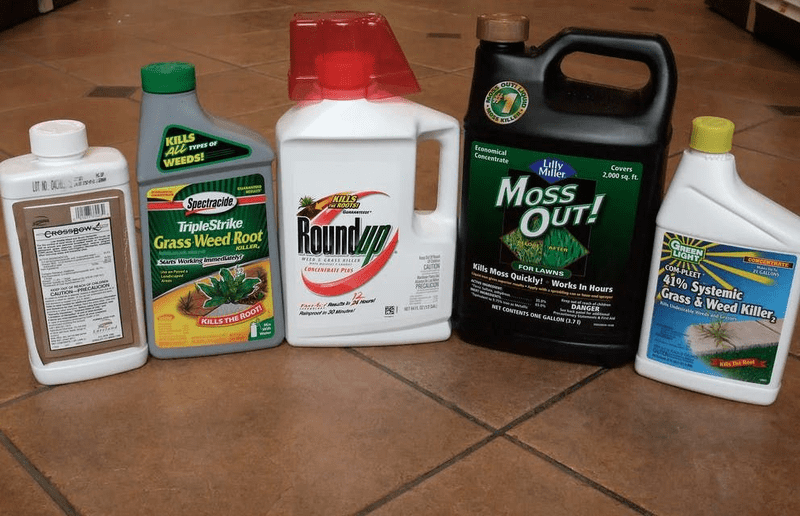If you've been following cannabis news, you likely know about Colorado's recent cannabis recalls. Within the last month, Colorado's cannabis regulators have issued 13 marijuana recalls due to the use of unapproved pesticides in marijuana grow operations. These recalls indicate a scary problem in the cannabis industry, and it's one that all consumers should be aware of
Pesticides and Cannabis
One of the most high-profile recalls in recent history is the recall that hit La Conte's Clone Bar in Colorado, which sells marijuana grown by Colorado's Best Inc. During a recent recall, health officials detected the presence of imidacloprid in 23 batches of the marijuana sold at La Conte's Clone Bar in Colorado. Imidacloprid is a popular, nicotine-like insecticide that is often used on agricultural crops but has not been approved for use in cannabis cultivation.
While this specific recall relates to a single dispensary, it's indicative of a much larger problem. Washington state recently fined two marijuana growers for pesticide use and Colorado has seen dozens of recalls before this one. At the end of the day, the problem boils down to how, and what kind of pesticides are used in cannabis production.
As is true with any agricultural crop, growing marijuana is difficult. Cannabis plants are prone to predation by insects and damage by disease and fungus. While these issues are easily managed in small grow operations, larger operations need to find a way to protect their plants and meet production demands. Because of this, they often turn to pesticides.
Unfortunately, gaps between federal and state laws have made it virtually impossible for cannabis farmers to find pesticides that are approved for use on their plants. In turn, this means that the pesticides they're applying to keep their plants safe are illegal and, often, unregulated. Despite the fact that medical marijuana is now legal in 23 states and the District of Columbia, and recreational marijuana is legal in four, cannabis is still classified as a Schedule I substance, which places it in the same group as drugs like Heroin, LSD and Quaaludes.
While the Environmental Protection Agency (EPA) is responsible for testing insecticides and pesticides and developing safety guidelines for their use on crops across the country, federal law explicitly bans the approval of pesticides for Schedule I substances, meaning that there are currently no legal pesticide options for marijuana farmers.
This agricultural loophole has created an enormous problem, wherein otherwise responsible marijuana farmers are left to take matters into their hands to protect their crops and consumers are left to purchase marijuana that may be tainted with dangerous pesticides.
The Difference Between Food and Marijuana Testing
Insecticides and pesticides are both used commonly in commercial food production. To keep food safe for consumption, however, the EPA sets strict "tolerances," which define how much pesticide residue can remain in the meat of or on the skin of food. This ensures that pesticide residues stay at harmless levels and keeps the food supply safe for human consumption. Unfortunately, commercially-produced cannabis doesn't go through the same testing procedures.
Because the government has yet to step in and implement rigid testing practices for commercial cannabis, states are essentially on their own when it comes to pesticide use in marijuana crops. Some states, like New Hampshire, have passed regulations that require only the least harmful pesticides (Such as oils derived from Peppermint and Neem - a naturally occurring pesticide derived from the Neem tree) to be used on cannabis plants. Other states, however, have yet to pass pesticide regulation and are still lacking defined tolerances from the EPA, which creates a dangerous gap in standardized testing practices.
As it stands now, states don't receive any federal guidance when determining how they will test commercial marijuana. Right now, twelve states require random testing to look for pesticide residues while states like New Mexico and Vermont only require cannabis to be tested after a complaint about pesticide contamination has been lodged. Delaware requires that dispensaries develop their own protocol for testing cannabis but doesn't specify that cannabis samples must be tested for pesticide residue. Colorado, on the other hand, doesn't require any standardized testing and merely requires un-tested cannabis to label itself as such. In California, a law passed on the first of the year that requires that commercial marijuana be tested for pesticides, mold, and other contaminants. In all states, growers and dispensaries are required to pay for any testing conducted, which is cost-prohibitive for many. Because of these varied and often spotty approaches, consumers are best served by learning to protect themselves from pesticide-tainted cannabis.
Protecting Yourself From Pesticides in Cannabis
Until standardized and monitored testing practices are implemented across the country, consumers can protect themselves from purchasing cannabis tainted with pesticides by following these tips:
- Always purchase from reputable sellers. Quality cannabis operations care about the safety of their product and will either use non-toxic pesticides (like Peppermint oil) or will invest in testing to ensure that their products are safe for human consumption. Purchasing from these sellers is the best way to ensure that you're purchasing pure products.
- Ask about testing practices. If you're in doubt about whether a marijuana product has been tested for pesticide residues, don't be afraid to ask. The seller should be able to provide you with information about the testing that was done and who conducted it.
- Know your state's laws. Right now, states are taking many approaches to marijuana testing. By knowing what testing requirements looks like in your state, you can make educated decisions about where and how to purchase marijuana.
As it stands now, cannabis testing and pesticide use are both largely unregulated. This places consumers at risk of buying tainted and possibly dangerous products. Until standardized testing and pesticide guidelines are implemented, the best way to mitigate those risks is to educate yourself about pesticide use and marijuana testing regulations.
